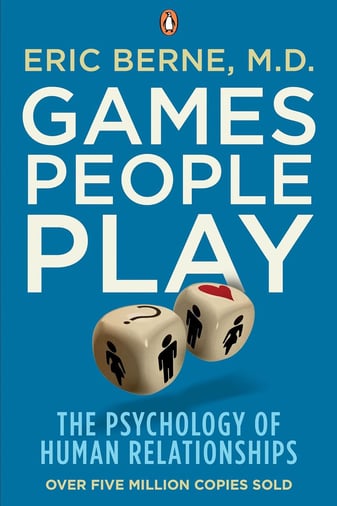Navigating the Intricacies of Human Interaction: Insights from 'Games People Play' by Eric Berne
Whether your goals include improving communication skills, building stronger relationships, or gaining a deeper understanding of human behavior, "The Games People Play" is a must-read. This book offers valuable insights that can transform your personal and professional life.
HUMAN BEHAVIOR
Embarking on the intricate journey of human relationships, Eric Berne unveils a concealed world within the complex tapestry of interaction—a realm governed by unspoken rules, subtle manipulations, and emotional ploys. In his seminal work, "The Games People Play," published in 1964, Berne, a distinguished psychiatrist and psychoanalyst, delves into the hidden patterns shaping our relationships, offering profound perspectives on the often unconscious games we play.
Berne's contention is that a substantial part of our interpersonal conduct revolves around games—repetitive patterns of interaction characterized by hidden agendas, ulterior motives, and unfulfilled expectations. These are not the playful activities engaged in for enjoyment; instead, they form intricate layers within the dynamics of human connection.
So, why do we play these games? According to Berne, games serve a variety of purposes. They can act as shields, helping us avoid intimacy and vulnerability, maintaining a semblance of control in our relationships, or attempting to fulfill unmet emotional needs from our formative years. However, despite these apparent functions, these games ultimately lead to dishonesty, frustration, and, ultimately, unhappiness.
Empowerment lies in understanding the games people play. By recognizing the patterns and hidden rules governing these interactions, we gain the ability to make conscious choices about how we engage with others.
Key Concepts Explored in "The Games People Play":
Ego States: Berne introduces the concept of three ego states—Parent, Adult, and Child—that compose our personalities. Understanding our own ego states and those of others enhances our ability to navigate interactions more effectively.
Transactional Analysis: This framework dissects how communication flows between individuals, identifying complementary and crossed transactions that can either escalate or de-escalate games.
Life Scripts: Berne argues that unconscious scripts developed in childhood influence our expectations and behavior in relationships. Recognizing these scripts liberates us from limiting patterns, fostering more enriching connections.
While "The Games People Play" may not be a light read, demanding introspection and a willingness to confront uncomfortable truths, the rewards of this exploration are immense. By understanding the games, we play, we pave the way for more authentic, fulfilling connections with others.
Whether your goals include improving communication skills, building stronger relationships, or gaining a deeper understanding of human behavior, "The Games People Play" is a must-read. This book offers valuable insights that can transform your personal and professional life.
Embark on this journey of self-discovery. Unmask the games people play, and create relationships built on honesty, trust, and genuine connection.


